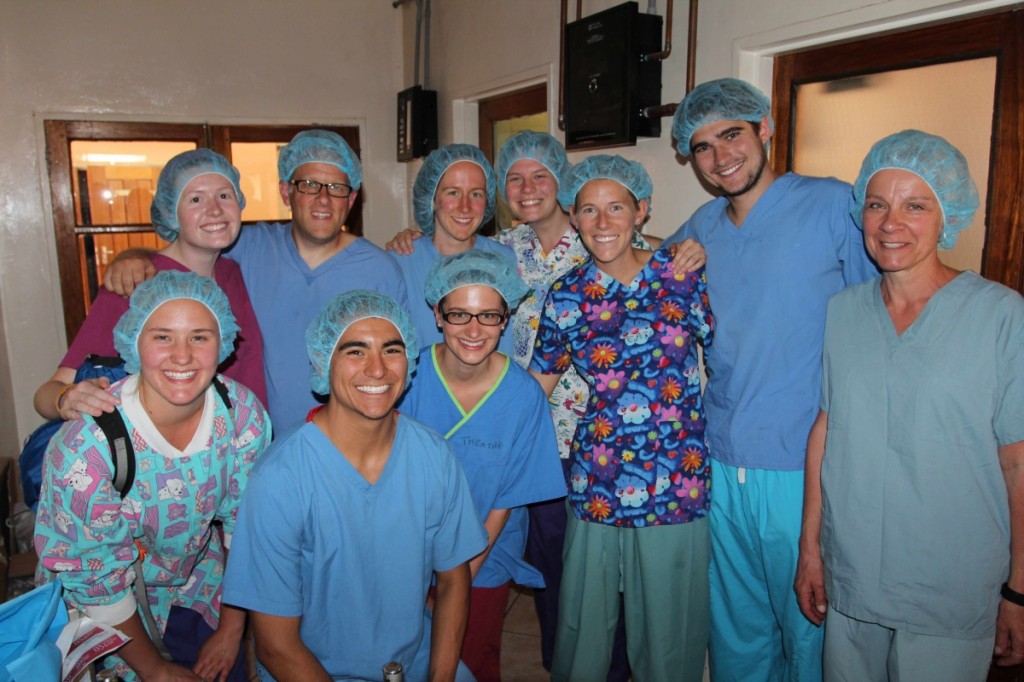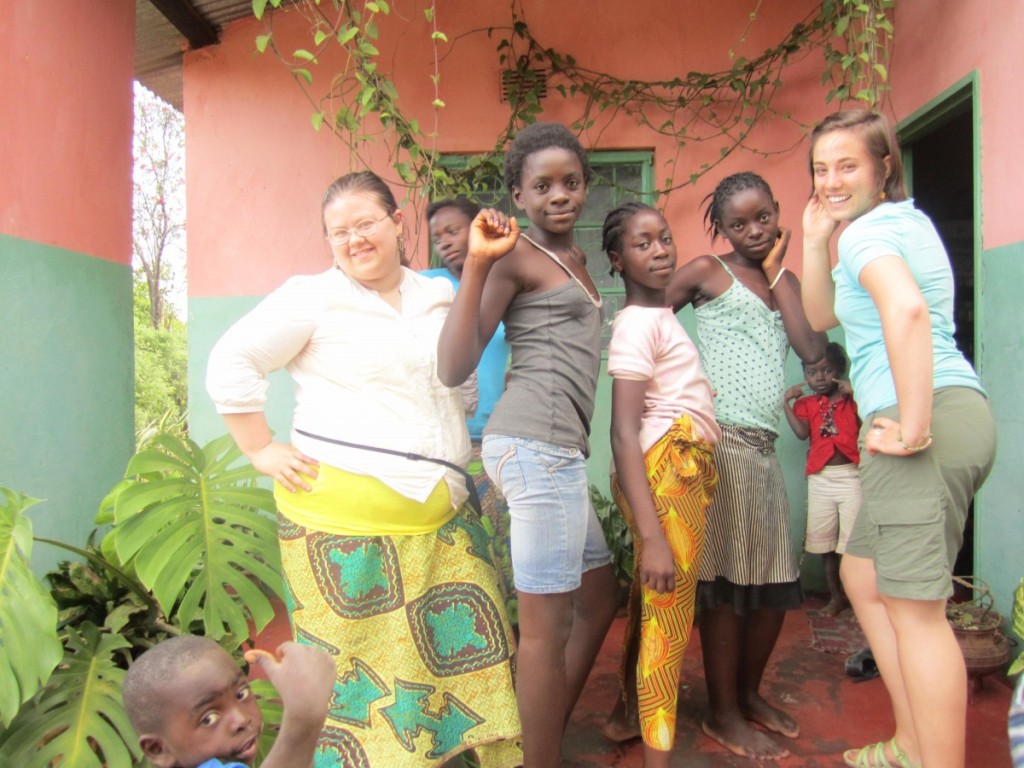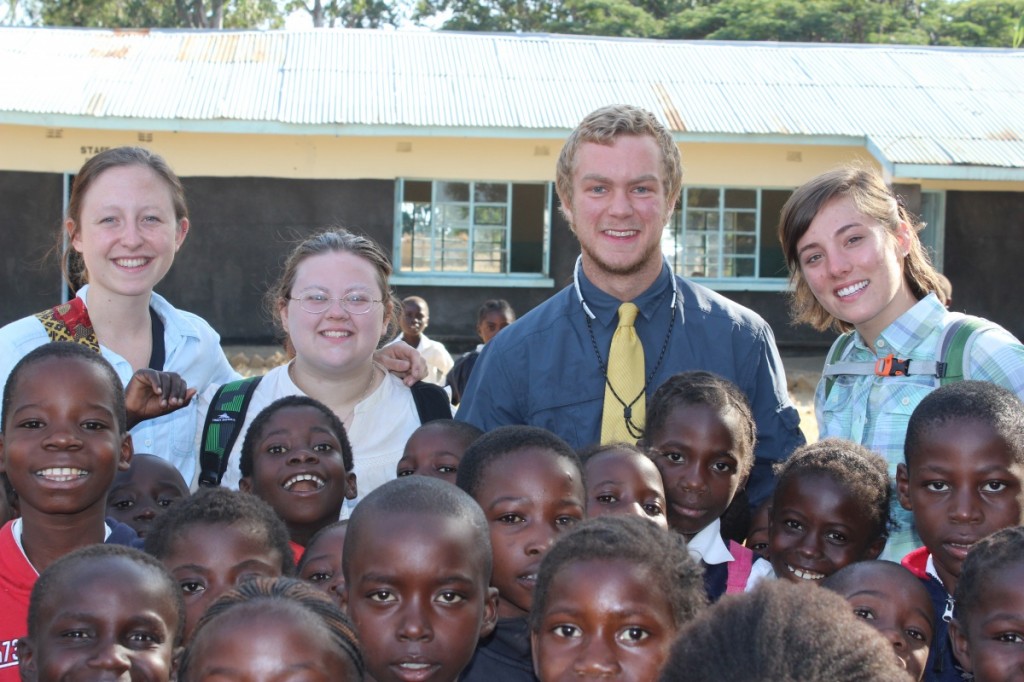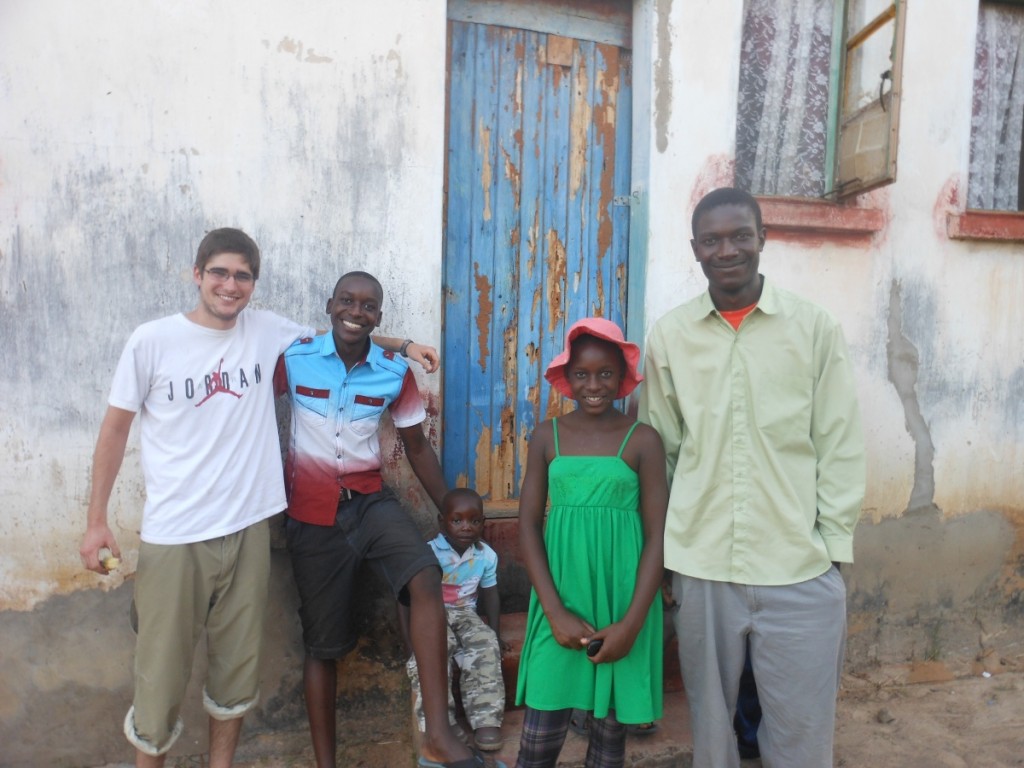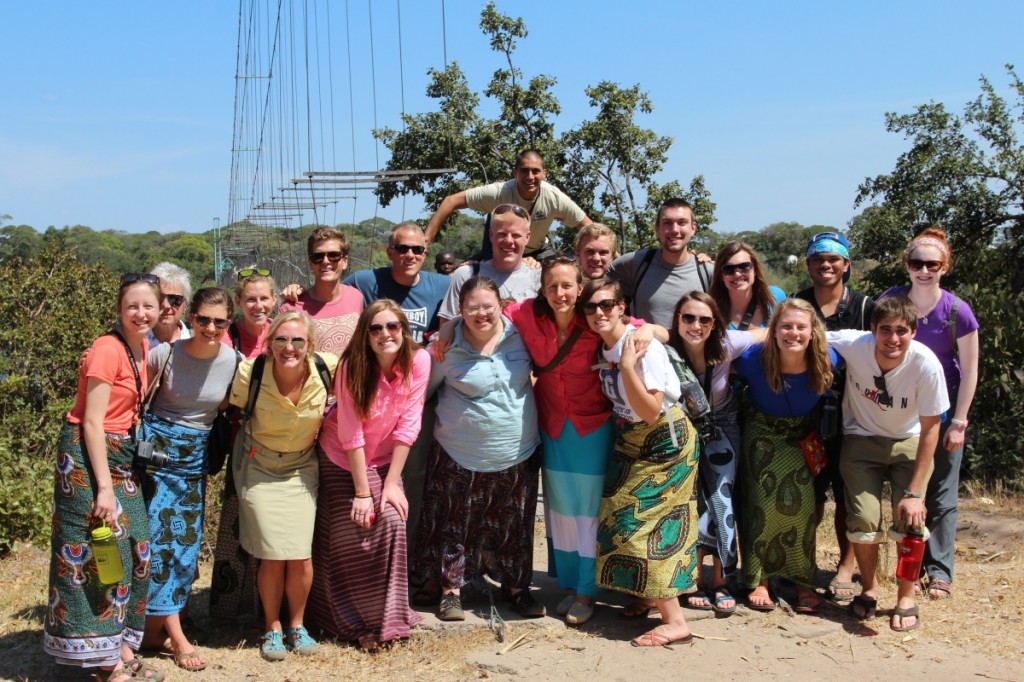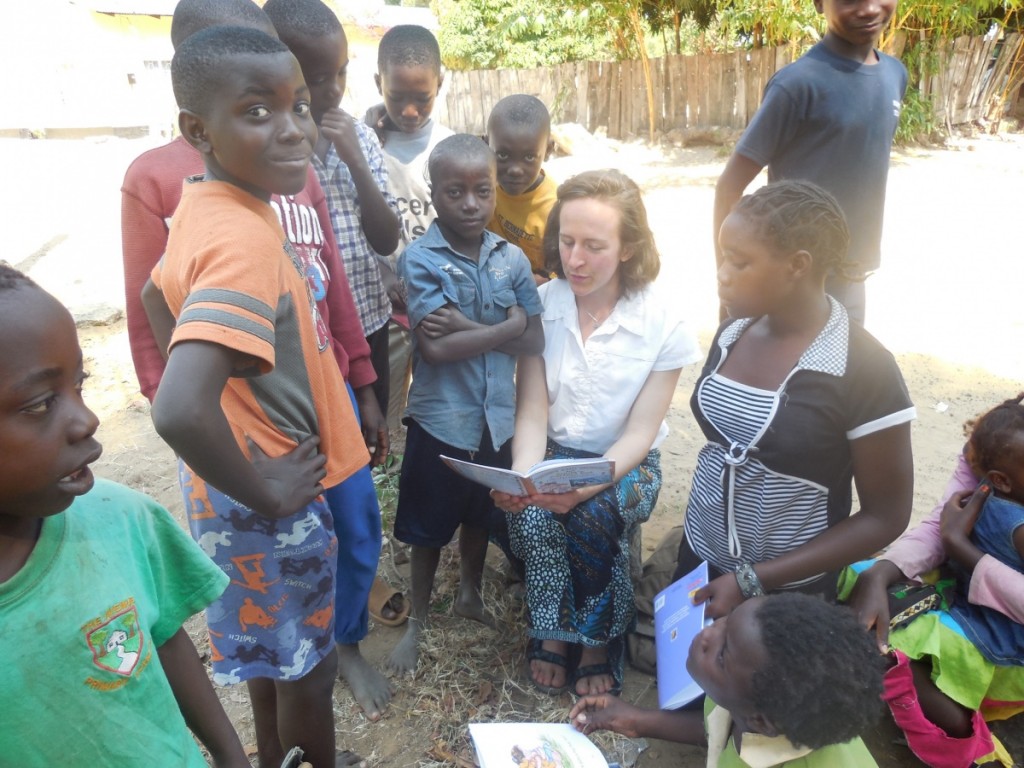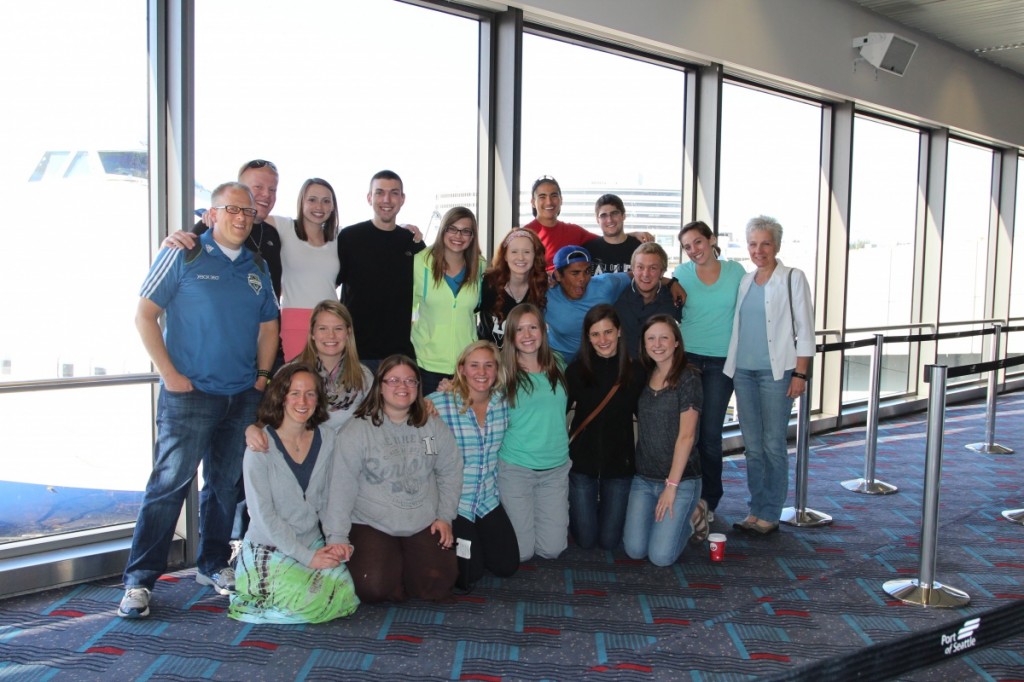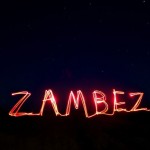All aboard the Zambian Rollercoaster! Complete with huge drops, breath taking highs, and loop-de-loops that will make you wish you had an empty stomach. The Zambian Rollercoaster is the most accurate description of my first eight days in Zambia. It is in these past eight days where I have found some of the most fiercely inspiring stories and also the most heartbreaking. I’ve heard stories that have made me feel extremely frustrated and others that have completely empowered me. Many stories are frustrating because you cannot help people if they do not want to help themselves. Other stories inspire and demonstrate how much human beings are capable of even in what looks like the most hopeless situations. We have been living in Zambezi for Eight Days and it is through the power of these stories that I have grown more in these past eight days then in the last eight months.
One of the most frustrating stories I’ve heard thus far was today sitting with the Catholic Home Based Care Workers. Throughout this journey our Health Team has learned to be flexible with our lesson plans but today a curve ball was throw our way. We arrived to do a question and answer with the Home Based Care Workers but conversation quickly shifted into a cry for help. Although we clearly defined our relationship with the Home Based Care Workers they were asking for handouts from the Gonzaga Team. Our focus is not on gifts but on empowerment of the community by focusing on sustainable projects that push the people of Zambia to stand on their own two feet. This put our team in a very awkward and uncomfortable predicament. As Gonzaga students we came here to teach and accompany the people of Zambezi and it was frustrating hearing the struggles of the Home Health Care workers knowing that we had no means to give them the things they asked of us. Hearing the story of the Home Health Care Workers was one of the lows on the Zambian Roller-coaster, but as roller-coasters go after a huge drop comes a steady incline, but not before a loop-dee-loop gets thrown in the mix.
I was naive to think that my sensitive stomach could contend with the differences in food over here in Africa. As I put it yesterday to Mr. Kawatu “losing my breakfast” was my free pass for sitting in the passenger seat on the way home from Chinyingi. (Don’t worry mom, I could not have gotten sick with a more perfect group of people. I am surrounded by two registered nurses, three future doctors, and three future nurses, not to mention the rest of my Zam Fam who are constantly checking up on me and making sure I have a full water bottle and an even fuller heart.) As I rattled and bumped down the sandy savannah road riding shot gun, the African food was not the only thing that was turning like a cement truck in my stomach. The quote Mary Oliver’s quote “What is it you plan to do with your one wild and precious life?” has been a reoccurring theme that I have been struggling with during my time in Zambia.
The Zambian people have impressed me with their ability to share so openly the stories that have brought them to this moment. These stories have been painted some very clear pictures of different ways people choose to spend their one wild and precious life.
Tanis, now a personal hero of mine, is a nurse at Chitokoloki Hospital about an hour drive outside of Zambezi. Growing up in Manitoba, Canada, Tanis heard about Zambian nurse missionaries and knew from age twelve that is what she wanted to do with her life. After losing sight of her vision during her teenage years she graduated from nursing school and still felt that tug to come to Zambia. Right after graduating she booked a flight to Zambia to see if this tug was actually her path in life. During a Zambian church service a Bible verse from Isaiah leapt off the page. The verse was about helping God’s people and it was right then and there she knew Zambia was God’s plan for her life. She has been in Zambia 18 years now working as a nurse and has mastered every department from surgery to maternity. As a single woman, she has adopted two orphan Zambian girls who are now her world and lives a beautifully decorated modest home by the Zambezi River. It is through Tanis’s openness and willingness to share her passion with us that she allowed the Health Team and Dr. Josh to scrub in for a surgery in the operating room at the hospital. Not many people can say that the first hysterectomy they witnessed was in an African hospital, can they?
Boston, a Human Resource worker at the hospital, is another example of an individual making the most of his one wild and precious life. As Boston toured our group around Chitokoloki hospital we slowly realized that that there was much more to Boston then met they eye. Boston is an empowerer in his community, during his short five year stay at Chitokoloki hospital he has started a successful chicken coop providing protein to malnourished patients at the hospital. Boston also began a sewing room for women to make school uniforms creating a income for these women to help support their families. Both Boston and Tanis are people that use their gifts and talents to make an impact on the community around them.
My time here in Zambia has felt like the longest eight days, but it has flown by. Each day is absolutely nothing like the one before full of new faces and new stories. These eight days have challenged me to address the question in my own life, what will I, Allison Lynn Crha, do with my one wild and precious life?
We only have one life to live (contrary to what the Witch Doctor we met on Tuesday believes). One life full of as much laughing and loving on each other (as Connor House would say) as possible. Just one life. How will you spend your one wild and precious life? Will you be a Tanis or Boston empowering those around you to stand on their own two feet to make a change. Although I don’t have all the answers figured out just yet in my life, I do know that wherever I end up, I will be making the most out of my one wild and precious time here in Zambia.
Kisu Kisu Mwane *claps hands and pats heart*
Ally Crha, Class of 2015

